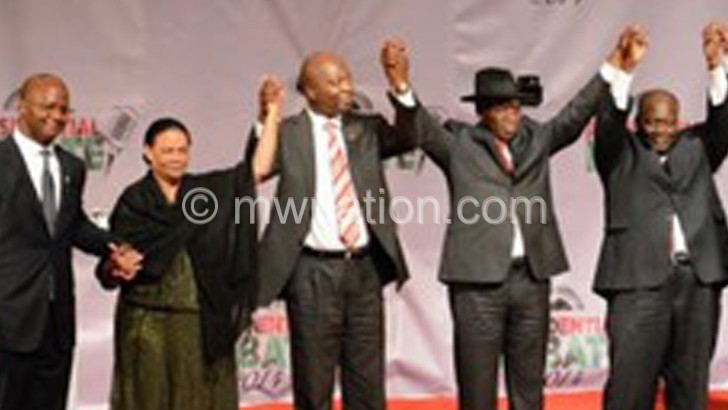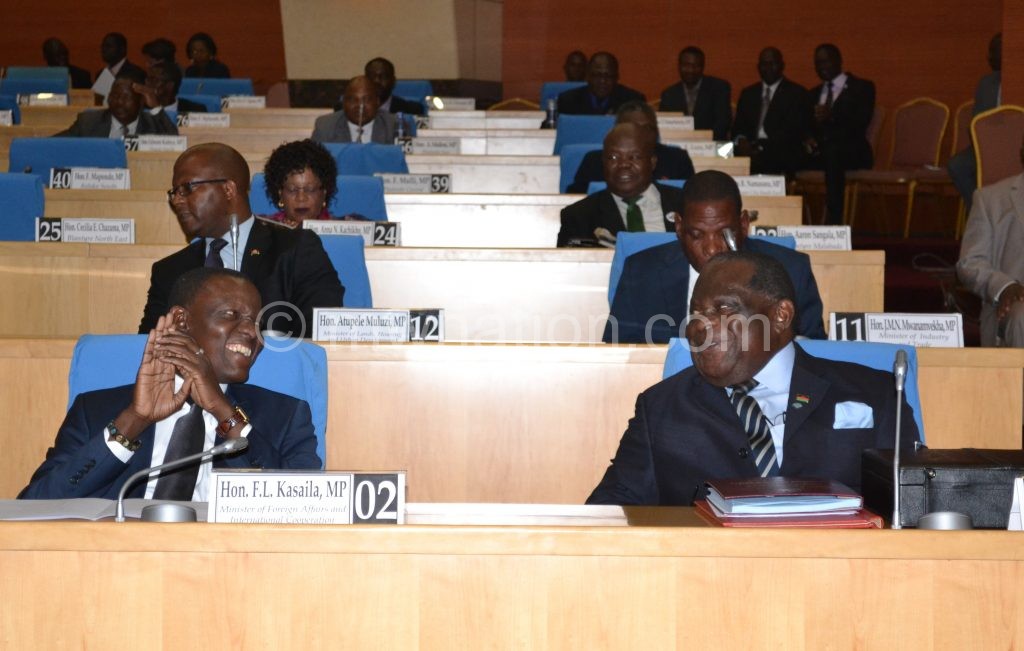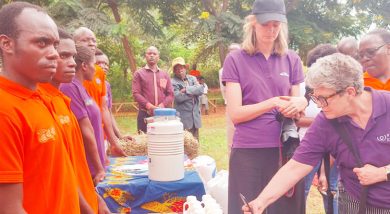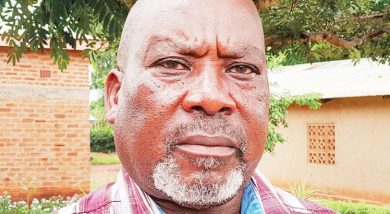2019 purge?
Tough recommendations in the electoral and general public sector reforms could completely change Malawi’s political landscape if implemented, and could purge some of the leading politicians from the 2019 polls.
The electoral recommendations are contained in a report of the Special Law Commission on the review of electoral laws while others are in the exit report of the disbanded Public Sector Reforms Commission (PSRC).
The former include academic requirements for presidential and parliamentary candidates while the PSRC, among other things, want parliamentarians barred from Cabinet appointments.
The proposals on electoral laws are a culmination of two decades of calls to reform legislation governing the administration and management of the country’s elections and come after nationwide consultations in which participants said they expect to see suggested changes effected before the next general election in 2019.

One of the proposals from the Malawi Law Commission prescribes a first degree that is “accredited and recognised” by the National Council for Higher Education (Nche) as an entry requirement.
“It was, therefore, agreed that only degrees that are issued by institutions that are accredited and recognised by Nche should be accepted for purposes of eligibility,” reads part of the commission’s recommendations.
The commission argued that the demands of the Office of the President made it necessary that some level of higher education be required and that such a move would be constitutional.
“The commission was thus of the view that a requirement of some form of education would not violate the Constitution. Besides the requirement would serve as an incentive for people to attain higher education and that removing such requirement would, in essence, have the effect of condoning the current state of education in Malawi,” said the recommendation.
The commission added that the degree requirement should also apply to the presidential running mate since they “could potentially act as, or become President, due to eventualities.”
A senior law reforms technocrat from the Malawi Law Commission yesterday said the letter and spirit of the proposal is that candidates should have credible degrees as per the “assessment framework of the institution that accredits higher education in Malawi”.
In a written response on Thursday, Nche acting chief executive officer Martha Mondiwa said while the council does not accredit institutions operating outside Malawi, the agency can be guided by the principle of ‘mutual recognition’.
“We seek to establish the accreditation status [in other words the recognition/credibility] of each institution by a competent authority or authorities in the home country.
“Foreign institutions that are duly accredited in their home country by competent and legally established bodies are considered ‘credible’ while those that are not accredited in their home country are not credible,” said Mondiwa.
The commission’s proposed amendment to the relevant Section 80 (6) of the Constitution, reads: “(c)…has attained a minimum of a first degree or its equivalent from a recognised or accredited institution”.
For the MPs, the commission recommended that the current requirement of being able to speak and read the English language should be abandoned in favour of a minimum formal education.
Thus, a person seeking to contest for the position of MP should have a minimum educational qualification of a Malawi School Certificate of Education (MSCE) or its recognised equivalent.

The commission recommended the amendment of Section 51 (l) (b) of the Constitution to read “(b) is in possession of a Malawi School Certificate of Education or its recognised equivalent and is able to speak and read the English language well enough to take part in the proceedings of Parliament”.
The report said some commissioners felt that the educational qualification requirement for those seeking parliamentary seats should be the same as that for the presidency, that is, a degree from a recognised and accredited institution.
“However, placing such high requirement for the position of MP could have the consequence of adversely affecting the number of women in Parliament since women had, for a long time, been marginalised in the education sector. As such, most women do not have a degree or basic education as evidenced by the various initiatives aimed at encouraging women to attain the highest possible education.
“Further, it was observed, in this regard, that more than half of the 32 female MPs currently in Parliament do not have a degree. This led some commissioners to suggest different eligibility criteria for men and women as a means of encouraging the participation of women in parliamentary elections,” reads the report.
Meanwhile, the broader PSRC—which Vice-President Saulos Chilima chaired before its mandate expired early this year—recommended in its exit report that that MPs should not be appointed Cabinet ministers.
That would wipe out at least 90 percent of President Peter Mutharika’s Cabinet if the proposal were to be implemented today.
The disbanded commission proposed that Cabinet ministers should be technicians and that the President should have a specified number of advisors that he or she should appoint.
Rough road to execution
But in a sign that the recommendations will face tough battles to turn them into law and/or actionable policies, some politicians and observers yesterday pushed hard against the recommendations.
“I doubt if these reforms would even pass at the Cabinet level. Leaders are not educated, leaders are born. And technocrats would not make good leaders,” said People’s Party parliamentarian for Nkhata Bay Central Ralph Mhone.
Mhone, who is also member of the Parliamentary Committee on Governance Assurance and Public Sector Reforms, said Malawi suffers from leadership quality deficiency because most educated people are not interested in politics, viewing it as ‘dirty’.
Former Speaker of Parliament Sam Mpasu said in an interview on Thursday that the challenge facing Malawi was lack of a visionary leader, not an educated person.
“Age and education are critical in a leader, but not very important. We are confusing matters between qualification and leadership. The best qualification of a leader is character and competence, this is what we are lacking in the country,” he said.
On MPs not being appointed ministers, Mpasu said that would be creating a constitutional problem as Malawi uses a hybrid system of government, combining presidential and parliamentary approaches.
“In parliamentary system the prime minister and Cabinet are accountable to Parliament and in presidential system the Cabinet is accountable to the President. Malawi has a bit of both, so if Cabinet ministers are not MPs, who will represent the Executive in Parliament? At the moment members of Cabinet are the interacting point between the Executive and Parliament,” he said.
United Democratic Front (UDF) spokesperson Ken Ndanga said it is “dangerous” for the country to be copying and pasting policies without considering their adaptability.
“We have seen good leaders in the country who have performed well, but they do not have education qualifications. These are just borrowed ideas from countries that are far ahead of us. Policies must be addressing a specific problem,” he said, adding that technocrats can as well join politics and make good Cabinet ministers.
While Democratic Progressive Party (DPP) spokesperson Francis Kasaila said the party’s position on MPs being picked for Cabinet posts is that it will respect those provisions and any amendments that can be made by Parliament.
“The DPP has no problem with the proposal,” he said.
Diplomat John Chikago observed that Malawi Law Commission was getting “confused”, saying academic qualification has nothing to do with leadership. n





